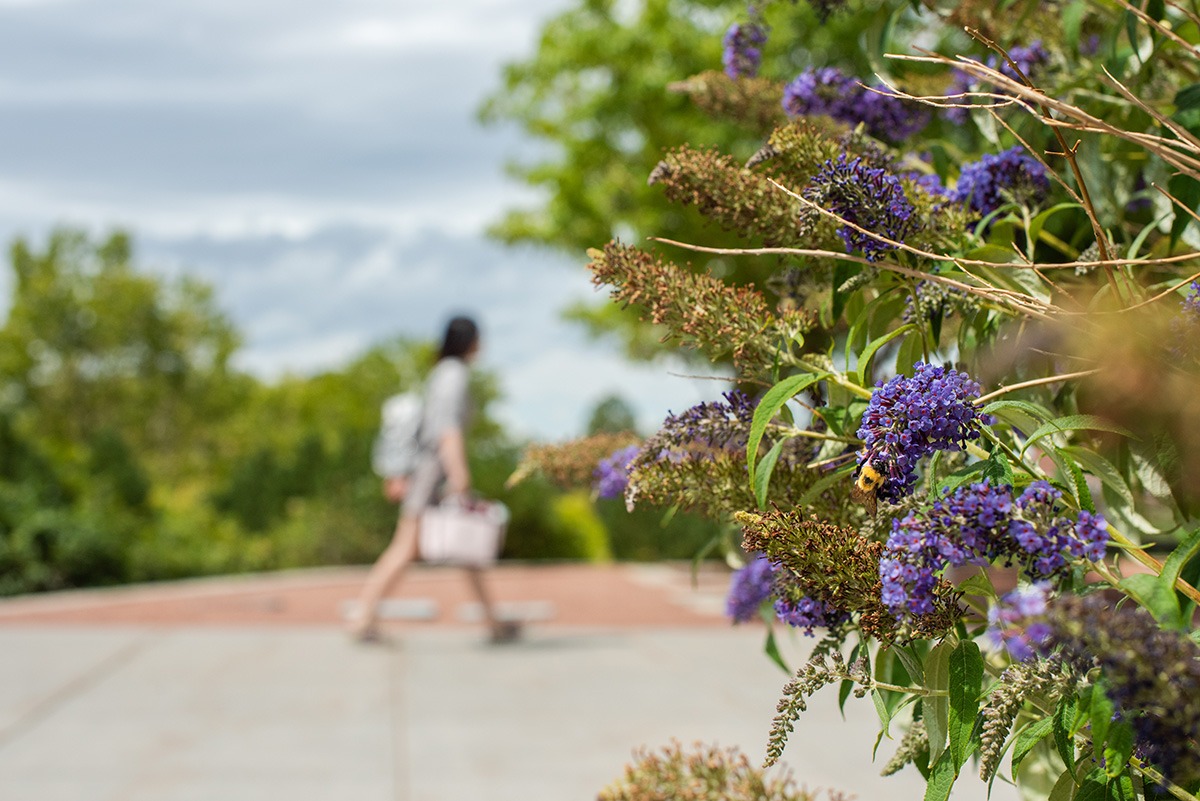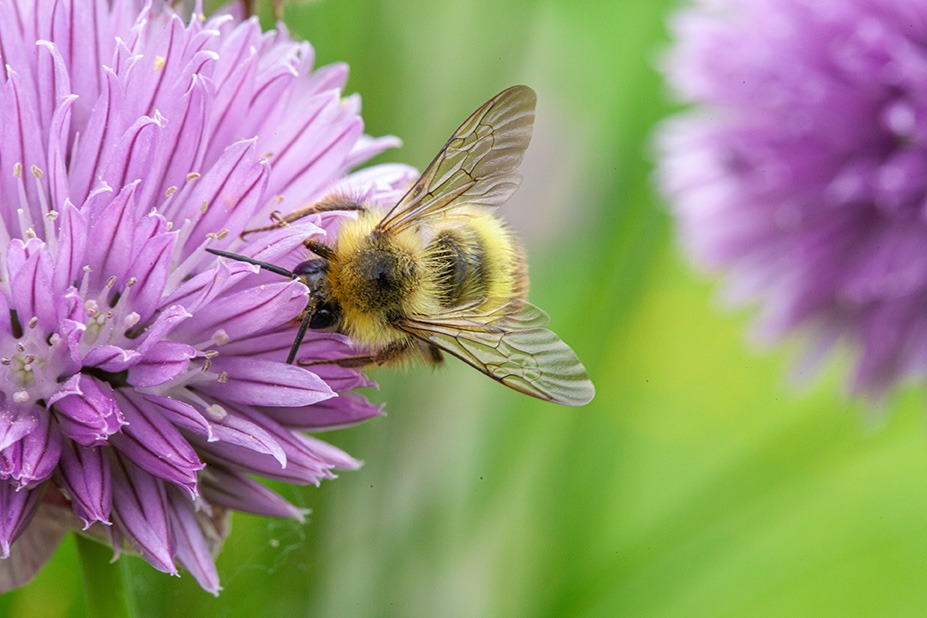
Dreaming of Making a Difference?
Let’s Create a Sustainable Campus
by Maria Archibald
The University of Utah has resources and funding available for you to create change.
Do you dream of transforming your college campus into the most sustainable, resilient, and inclusive place it can be? At the University of Utah, resources and funding are available for you to do just that.
Over the years, sustainability initiatives at the U have largely been driven by students. Thanks to programs like The Sustainable Campus Initiative Fund (SCIF), students have the power to make positive change and leave a legacy on campus for generations to come.
SCIF is a grant program that funds a variety of sustainability initiatives at the U. It was established 2008 in response to a student demand for sustainable infrastructure on campus and opportunities to gain real- world project management experience. SCIF was not only founded by students; it is also funded by students, who pay $2.50 each semester to make the program possible.
“SCIF is a tool that can really elevate problems on campus and turn them into sustainable opportunities,” says SCIF Manager Emerson Andrews. “In the long term, we hope it makes campus a regenerative place.”
Andrews explains that the SCIF framework is rooted in the university’s understanding of sustainability as “the work towards a future wherein we maintain environmental integrity, [and] economic security for future generations and for ourselves.” Any idea that fits within this framework could be a SCIF project.
One such idea came to a student named Thomas Bench in 2012. Bench was concerned about collapsing honeybee populations, an issue that gained notoriety just a few years earlier when beekeepers reported abnormally high death rates in their hives. Inspired to transform the University of Utah into a bee-friendly campus, Bench applied for a SCIF grant and worked alongside key stakeholders to install two hives behind a locked glass door on the fourth floor of the Student Union.
Over the last decade, Bench’s vision has grown into a thriving network of hives that house bees, produce honey, pollinate plants, facilitate research, and educate students across campus. “As the club grew, and we got more money and more funding, we expanded the hives,” says Derek Kober, current student president of the U of U Beekeeper’s Association. “We have some in the library, we have some up by Kahlert Village, and some up by the Health Sciences Campus.”
With continued support from SCIF, the U of U Beekeeper’s Association has grown into one of the largest beekeeping clubs in the state. But, according to faculty advisor James Harris, the club is about much more than just honey beekeeping–it’s also about pollinator protection and care.

While honey bees are vital to agriculture and responsible for pollinating much of the food that we eat, they are not native to Utah. In some cases, Kober explains, they can even compete with and cause problems for native bee populations.
That’s why the club strives to balance honey beekeeping with protection for native bees and pollinators. “There is a huge effort in terms of education and awareness, and the sustainability of both native bees and honeybees,” says Harris.
But the club’s support of native pollinators goes beyond acknowledgement and education, Kober explains: “We’re taking actions to support their growth and maintain their growth on our campus.”
In addition to the hives, for example, the club has established a pollinator garden that provides habitat and food for bees, butterflies, hummingbirds, and other native pollinators. “It’s kind of fun to see people come in thinking that they’re doing beekeeping and all of a sudden they find out they’re part of a larger cause,” Harris adds.
In 2020, the U was certified as a Bee Campus USA, a designation that recognizes nearly a decade of student-led work to consider pollinator habitat and protection in campus infrastructure and planning.
“The leaders before had a real vision,” says Harris. “This was no small task.”
At the U, there is no need to limit yourself to small tasks. With the support of resources like SCIF, students achieve big things for sustainability.
Andrews wants the campus community to know that SCIF is for everyone. “Sustainability really touches all aspects of our lives,” he says, and every student, staff, or faculty member has something to offer. “Engineers are very crucial, so are artists; people who understand policy are just as crucial as people who understand planning; people who understand communications are just as crucial as people who understand the science behind everything,” Andrews explains.
Whatever your skills, interests, and passions may be, consider applying for SCIF to make your ideas a reality. “This is for you,” Andrews says. “Let’s try something.”


